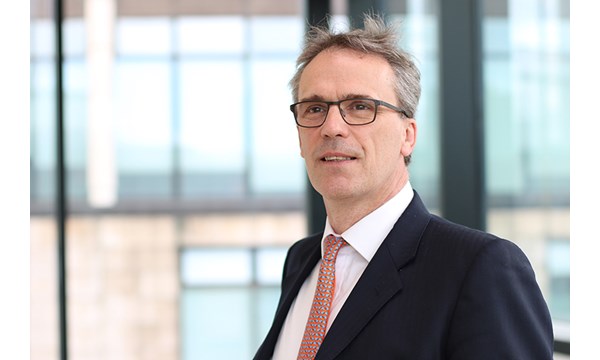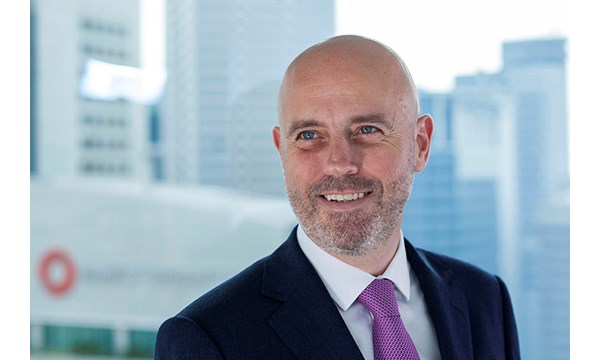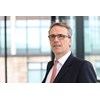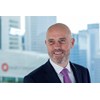Sign up today to get the best of our expert insight in your inbox.
Are voters turning their backs on the EU’s 2030 climate objectives?
When the energy transition collides with national politics
4 minute read
Simon Flowers
Chairman, Chief Analyst and author of The Edge

Simon Flowers
Chairman, Chief Analyst and author of The Edge
Simon is our Chief Analyst; he provides thought leadership on the trends and innovations shaping the energy industry.
Latest articles by Simon
-
The Edge
A world first: shipping carbon exports for storage
-
The Edge
WoodMac’s Gas, LNG and the Future of Energy conference: five key themes
-
The Edge
Nigeria’s bold strategy to double oil production
-
The Edge
US tariffs – unpredictability is the strategic planners’ nightmare
-
The Edge
US upstream gas sector poised to gain from higher Henry Hub prices
-
The Edge
What comes after the Permian for IOCs?
Gavin Thompson
Vice Chairman, Energy – Europe, Middle East & Africa

Gavin Thompson
Vice Chairman, Energy – Europe, Middle East & Africa
Gavin oversees our Europe, Middle East and Africa research.
Latest articles by Gavin
-
The Edge
A world first: shipping carbon exports for storage
-
The Edge
WoodMac’s Gas, LNG and the Future of Energy conference: five key themes
-
The Edge
Nigeria’s bold strategy to double oil production
-
The Edge
US tariffs – unpredictability is the strategic planners’ nightmare
-
The Edge
Upside pressure mounts on US gas prices
-
The Edge
The coming geothermal age
European voters just threw a spanner in the works of the EU’s 2030 decarbonisation targets. Last month’s European parliamentary elections saw a dramatic shift in power to nationalist and populist parties, which tapped into, among other issues, voter scepticism over the pace and sheer cost of the energy transition.
I asked Gavin Thompson and our European research team about the impact of the elections on tackling climate change.
First, there’s a growing divergence between EU targets and national plans
The EU has long been net zero’s poster child, but its ability to force members to deliver climate goals only extends so far. The ambitious 2030 targets of the RePowerEU plan, announced in May 2022 after Russia’s invasion of Ukraine sent energy prices through the roof, are not legally binding at the national level. Even before the elections, several national governments within the EU (and in the UK) had already pushed back on existing targets, including delaying the phaseout of Internal Combustion Engine powered cars and gas boilers.
Beyond the alphabet soup of EU energy and climate policy, member states still retain a significant degree of control over their own energy and climate policy. And while members must submit a National Energy and Climate Plan (NECP) to align country-level objectives with the overall ambition of the bloc, some countries’ draft plans fall short of what’s required to reach EU 2030 targets.
Second, electrification isn’t happening quickly enough
Wind and solar backed up by energy storage, nuclear and decarbonised thermal generation are widely accepted across Europe as the route to energy security and zero emissions. Renewables expansion remains strong and the goal of 71% of generation in the power sector by 2030 is within reach.
However, the upgraded target for renewables’ share of overall energy supply to reach 42.5% by 2030 is a far tougher ask. Given the tight timeframe, achieving this will require major supply chain investments, a task made all the more difficult by rising EU tariffs on Chinese hardware.
Third, hydrogen, EVs and heat pumps are facing cost challenges
Electrolyser targets appear in only around half of the NECP updates and, combined, do not reach REPowerEU goals. Most green hydrogen growth occurs beyond 2030, and is heavily underpinned by future offshore wind, which is already struggling against supply chain constraints and higher costs. Meanwhile, falling gas prices have held back demand growth. Consequently, WoodMac’s low-carbon hydrogen demand forecast is less than a quarter of the 20-Mt target by 2030 set out in RePowerEU.
EV ambitions also disappoint. Although the major markets of Europe have included EV targets, more than half of EU members have not, undermining a major pillar of electrification and load growth. The EU’s directive to prohibit non-EV sales from 2035 receives limited acknowledgement in NECP drafts.
The electrification of heating for buildings through heat pumps is at the heart of Europe’s climate objectives, with an additional 60 million heat pumps targeted by 2030 compared to 2020. Annual heat pump sales have surged over the past decade, particularly in response to the energy crisis. High capital costs and falling gas prices, though, saw 2023 sales declining by 5% year-on-year, so we expect only around half of the 2030 growth target to be met.
With upfront installation costs making the average heat pump more than three times as expensive as a traditional gas boiler, additional financial incentives for consumers are crucial to maintain the momentum.
Fourth, gas demand remains strong as prices fall
REPowerEU took aim at Russian gas supplies. But the realpolitik of energy security has seen LNG imports booming and new gas-fired power plants are under construction in Italy, Germany, Greece and Ireland. We expect a slower rollout of heat pumps and electrolysers as gas prices soften. Across all sectors, we forecast gas demand to decline modestly to 295 bcm by 2030, from 314 bcm in 2023, well above the 220 bcm REPowerEU 2030 target.
Where next for the EU?
The European Parliament elections weren’t a referendum on the EU’s 2030 climate objectives. A myriad of issues is feeding into the political realignment of Europe. But the rising costs and subsidies required to deliver Europe’s 2030 climate targets undoubtedly proved easy prey for populist politicians with the cost of living a pre-eminent concern for electorates everywhere.
Europe’s 2030 decarbonisation goals were always ambitious. With pragmatism dictating the pace of the continent’s action on climate change, EU voters have shown how difficult lofty targets can be to achieve.
Thanks to: Brian Gaylord, Michelle Stivala, Prakash Sharma and Lucy Cullen.
Make sure you get The Edge
Every week in The Edge, Simon Flowers curates unique insight into the hottest topics in the energy and natural resources world.







